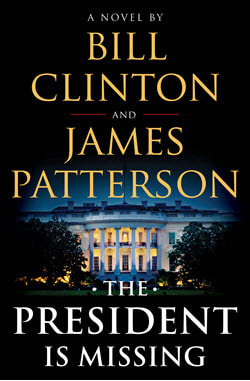 As a poli sci nerd of many, many years, The President is Missing was too good of a book to pass up on. James Patterson is a best-selling author, and Bill Clinton used to be president of the United States. This, combined with help from David Ellis and others, had the potential of turning this idea into a pretty good story. While Patterson’s writing success is impeccable, there was no way this book would ring as true as it did without the help of President Clinton. You just can’t tell a story about the president in first person and expect it to work unless you have someone who has walked the halls and made the calls only the Commander in Chief can. The best scene in the book to illustrate this point is when President Duncan is required to drive a car and is totally amazed by the modern technological conveniences that come standard in today’s vehicles (as someone whose car is as older than the incoming freshman he will be teaching this fall, I can heartily relate). Since most of the narrative is confined to a single day, the book reads like an episode of 24, in that the action really is nonstop. Patterson and Clinton give us a character facing multiple challenges that he has to overcome in short order so he can be the hero and save the country. And the reason Duncan is compelling is because Clinton clearly helped shape the determined, self-assured and highly intelligent chief executive. Also, the love for his daughter, rang very true. There might be some clichés here and there, but they are the acceptable ones for this kind of action-adventure story. The authors do deserve a good deal of praise for explaining some highly technical concepts in ways the average reader can understand. Sure, the book tells more than it shows at points but you’re willing to forgive this transgression because of the novelty of having because you have a real president writing about a fictional president. While First Daughter Margaret Truman was a fairly successful murder mystery novelist, the leader of the free world, current or former, does not pen techothrillers. The only real problem with the story is the ending, where the aforementioned problem of telling rather than showing comes into play. Our protagonist is called to speak to a Joint Session of Congress and the authors (I am guessing it is Clinton here, because Patterson, a successful scribe, would know better) cannot resist the opportunity to give the readers a major policy address (OK, to be fair, we’re not talking a 60-plus-page Ayn Rand rant, but the entire chapter is devoted to the speech). A writer more focused on story that ideology would have condensed major portions of the speech, added narrative beats, and so forth. Interestingly enough, Duncan (and by default Clinton if my original premise is true) apologizes for the diatribe, but I think it gives us insight into the President, both fictional and real-life, that Chapter 128 wasn’t pruned down in the first place. However, if that is the worst of the offenses, then such is a minor imperfection in a pretty good story that you literally can’t put down (I had my nightlight on for an hour speeding through the last 80+ pages).
0 Comments
|
AuthorI've been writing stories and taking photos since I was old enough to hold a pencil and stand behind a tripod. Archives
February 2024
Categories
All
|
 RSS Feed
RSS Feed